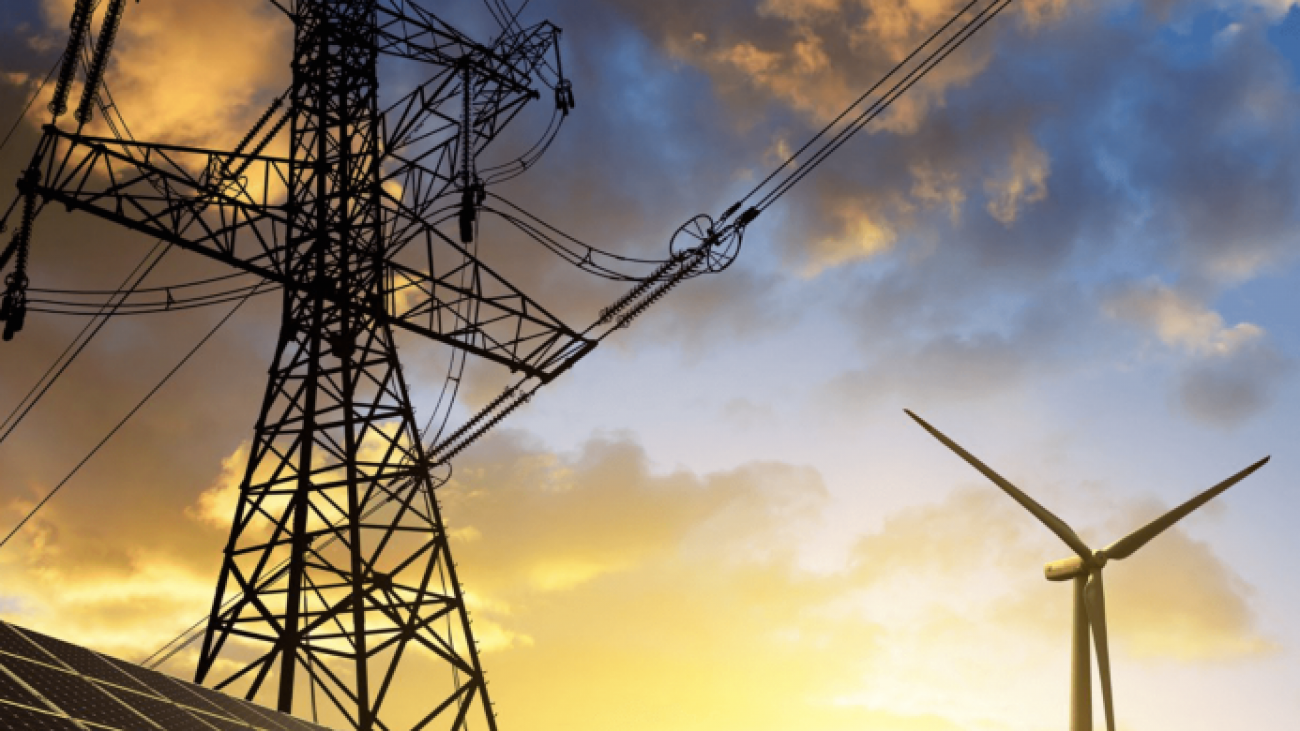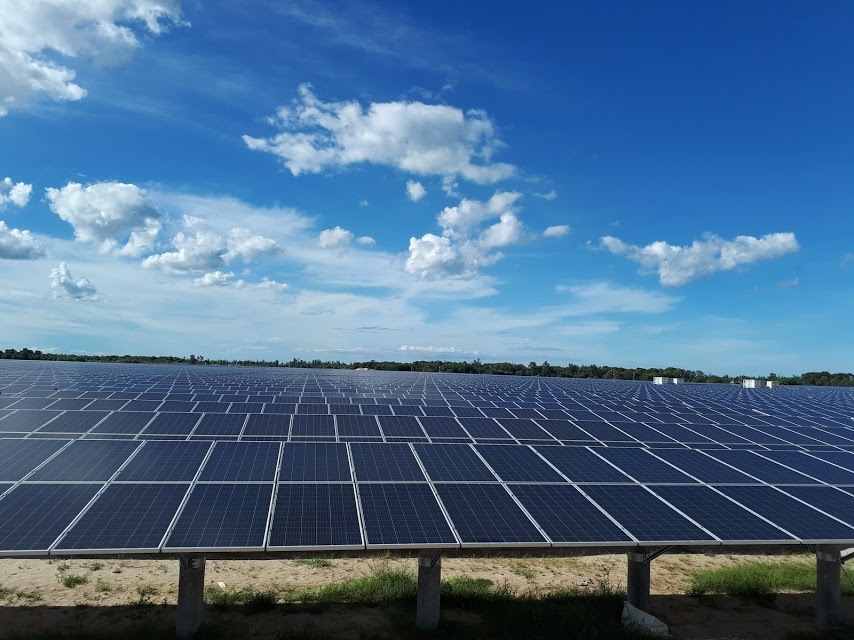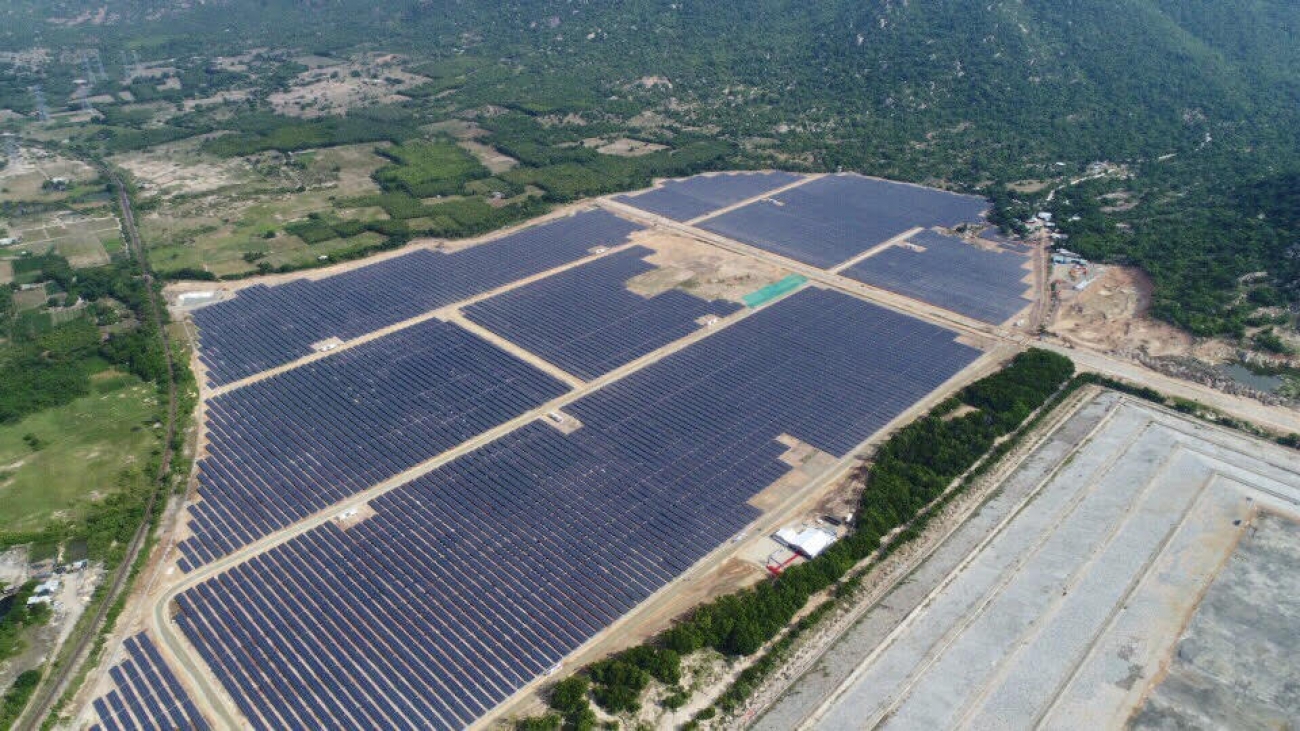Today, September 17, 2019, in Hanoi, Vietnam Sustainable Energy Alliance (VSEA), Vietnam Climate Action Coalition (VCCA) and Climate Change Working Group (CCWG) organize Vietnam Renewable Energy Week 2019. Event will take place from 17-20 September in Hanoi and An Giang. This year’s program aims to create a forum for information exchange, multilateral dialogue to propose solutions to contribute to equitable energy transition and bring the greatest benefits to development. sustainability of Vietnam.
Over the past year, Vietnam has made great strides in renewable energy development. Especially with the record of new solar PV capacity put into operation, Vietnam has become one of the most vibrant and attractive renewable energy markets in Southeast Asia. However, this “rapid” development is also posing new challenges in the comprehensive development of the grid system, land use, electricity price mechanism, human resources / employment and resources. In order for Vietnam to overcome these challenges, it is very necessary to join hands, support and efforts of all parties from policy makers, businesses, researchers, government and the community. Local currency to development institutions or to the financial sector, to banks.
In that context, Renewable Energy Week 2019 focuses on the theme Energy transformation in Vietnam: opportunities, challenges and lessons learned from international countries. This is an opportunity to bring the voices of stakeholders to contribute to the process of promoting efficient and sustainable energy transition in Vietnam, in particular to contribute ideas and solutions to energy development directions. and the upcoming energy planning VIII or development policies for renewable energy and climate, and environmental protection.
A series of events in Hanoi opens with a seminar: The energy transition in Vietnam will update the current status of Vietnam’s electricity system development, what can Vietnam do to meet the energy transition trend. as strong as today? What can Vietnam learn from international friends’ lessons on successful translation? All will be clarified at this seminar.
The importance of employment cannot be ignored in the transition process. The decision on the proportion of renewable energy in power planning 7 adjusted from 6% to 10.7% paved the way for 315,000 jobs created each year from the power sector, in which the number of new jobs created from renewable energy is high. twice as much as fossil fuels. This means that the training capacity of universities and vocational schools needs to adapt to this development trend in order to create a suitable human resource to meet the domestic demand. This content is presented at the symposium: Mobilizing co-benefits of climate change mitigation measures from renewable energy.
Energy transition will be a golden opportunity to attract investment. So, is renewable energy easy or difficult to attract finance? Where does energy finance come from? How is the demand for renewable energy investment from the private sector? How can the industry use renewable energy? This series of questions will be discussed at the seminar on Monday: Green Finance for the Renewable Energy Industry in Vietnam.
The Mekong River Delta is a region with strong energy transition potential, especially An Giang is the leading province in the development of renewable energy. To update the development of RE in the Mekong Delta; sharing local solutions, seminars: Sustainable Energy Transition: Opportunities and Challenges for the Mekong Delta was held on September 20 in Ho Chi Minh City. Long Xuyen An Giang province. The workshop was focused on sharing and promoting initiatives from communities, businesses, and local authorities on distributed and combined renewable energy development models.
“As a country with diversified and abundant renewable energy potential, Vietnam will have many benefits from its early transition to clean energy development. Prioritizing energy efficiency and promoting the development of renewable energy will help ensure energy security, reduce dependence on imports of fossil fuels, reduce pollution, protect climate, and public health. , increase access to energy for the poor, create opportunities to attract investment and create jobs for localities to develop economically, promote participation and creativity of the people, Private business entering the clean energy market. Therefore, in order to ensure equitable energy transition, harmonizing the interests of all parties, we need to strengthen dialogue, sharing information, solutions, lessons learned between countries, localities and cooperation. take action to remove difficulties, pave the way to bring clean energy to every Vietnamese house”. – Ms. Nguy Thi Khanh – Director of Green Innovation and Development Center (GreenID) – VSEA Coordination Agency
The Vietnam Sustainable Energy Alliance (VSEA), formerly known as the Energy Alliance, was established in 2012 by 05 NGOs to promote sustainable energy development in Vietnam and the Mekong region. VSEA is an active partner in the energy transition in Vietnam. Up to now, VSEA has 12 members.
The Vietnam Climate Change Working Group (CCWG) was established in early 2008. The group operates under the auspices of the Non-Government Organizations Data Center (VUFO-NGO RC). The Group’s mission is to contribute to reducing the community’s vulnerability to the impacts of climate change through coordination, policy advocacy and capacity building activities of non-governmental organizations, working towards Sustainable climate change deputy economic and social equity.
The Climate Action Alliance (VCCA) is a multi-stakeholder network working in the areas of sustainable energy, green development and climate change response in Vietnam. The Coalition is committed to take concrete actions to contribute to the government, existing networks and coalitions to contribute to the joint efforts to respond to climate change and equitable energy transition in Viet Nam and Global.






